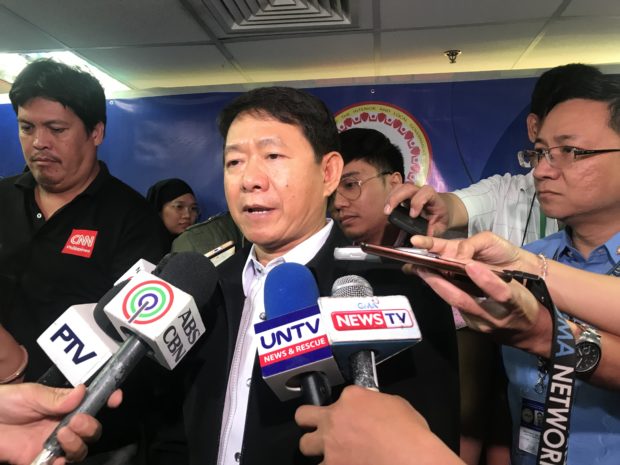Año issues guidelines in PNP war on drugs

Acting Interior Secretary Eduardo Año. (Photo by JULLIANE LOVE DE JESUS / INQUIRER.net FILE PHOTO)
Under the new Philippine National Police (PNP) guidelines on the antidrug campaign, allegations of human rights abuses should be “a thing of the past,” the principle of command responsibility would be followed, and the “one-strike” policy would be implemented, acting Interior Secretary Eduardo Año said on Thursday.
“I am demanding accountability from our police officers. With their salary increase, they should shape up or ship out,” Año said, referring to the significant pay rise that police officers received recently from the Duterte administration.
Año said a one-strike policy meant that the unit commander would be sacked should “PNP members under a chief of police (were) arrested and charged (with) involvement in illegal drugs by other operating units.”
He said the policy also applied “when two or more cops under a provincial director (were) relieved due to illegal drug issues, and if two or more police directors (were) relieved due to drug-related issues.”
Report abuses
Article continues after this advertisementArticle continues after this advertisement
The Department of the Interior and Local Government chief encouraged the public to report police abuses in antidrug operations to its field offices, the National Police Commission, and the local People’s Law Enforcement Boards.
Philippine Drug Enforcement Agency Director General Aaron Aquino said he already instructed his officers to review the PNP’s new supplemental guidelines for better coordination between the two agencies.
Speaking to reporters in Malabon City, Aquino took note of the new guidelines that included timing police visits to the homes of drug suspects and seeking their surrender only between 8 a.m. and 5 p.m. on weekdays.
Drug raids, however, may still be done at night.
‘Better in daytime’
“I think it’s better (to conduct operations) in daytime (to prevent) misencounters and armed encounters,” he said.
The Commission on Human Rights (CHR) said that with the PNP’s new guidelines, “strict and actual adherence to…human rights and the rule of law must be ensured whether it is done at daytime or nighttime.”
Lawyer Jacqueline de Guia, spokesperson for CHR, said the agency hoped that the use of body cameras under the new guidelines would allow transparency in police operations.—WITH REPORTS FROM KRIXIA SUBINGSUBING AND JHESSET O. ENANO